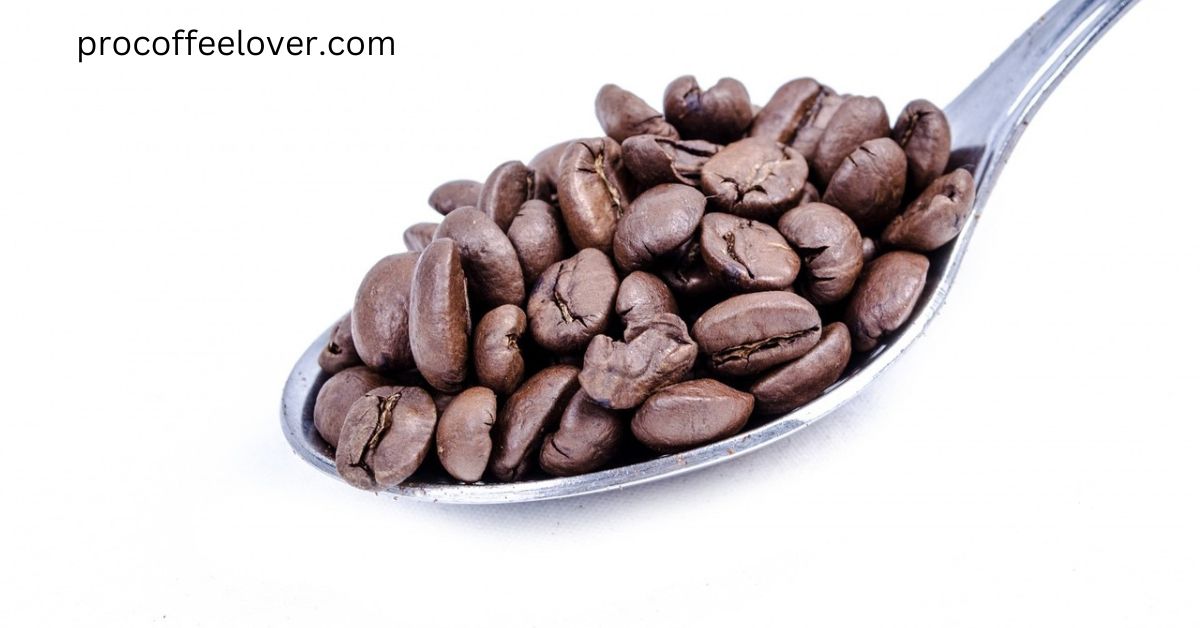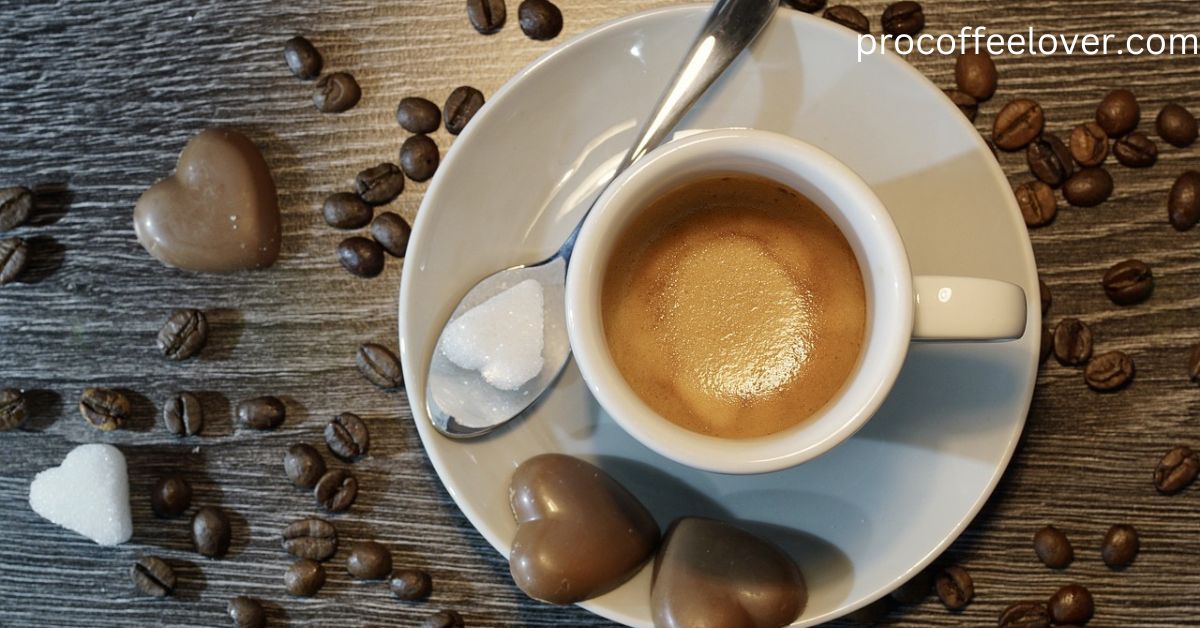Let’s discuss How Much Caffeine Is In A Tablespoon Of Instant coffee. Instant coffee is made from brewed coffee dehydrated into powder or granule form. It is one of the most popular coffee products worldwide, with many commercially available brands.
The drying process removes water from brewed coffee, leaving only the soluble coffee solids behind. This allows instant coffee to be quickly reconstituted by adding hot water or milk. The convenience of instant coffee has made it a pantry staple in many households.
Regarding caffeine content, instant coffee contains a similar amount of caffeine as regular brewed coffee. However, the exact amount can vary depending on several factors.
This includes the brand, coffee bean type, serving sizes, and preparation method. By understanding how these factors affect caffeine levels, consumers can better moderate their caffeine intake from instant coffee.
Average Caffeine Content In A Tablespoon Of Instant Coffee

According to the United States Department of Agriculture, an average tablespoon of instant coffee contains 30–90 mg of caffeine. This average range considers the diversity of coffee brands and types of instant coffee available.
A tablespoon of ground coffee beans contains around 100 mg of caffeine on average before brewing. The lower caffeine content in instant coffee can be attributed to two reasons. Firstly, robusta coffee beans naturally contain almost twice as much caffeine as arabica beans.
Many instant coffee brands use a blend of arabica and robusta beans, which lowers the overall caffeine content. Secondly, the freeze-drying or spray-drying process used to make instant coffee can result in some loss of caffeine compared to regular hot-brewed coffee.
A 2005 study published in the Journal of Analytical Toxicology measured the caffeine content of ten different instant coffee brands. They found a range of 27 to 173 mg of caffeine per tablespoon.
This demonstrates the considerable variation between brands due to factors like the coffee bean species, blend ratios, and manufacturing process. Also,see more about Fellow Ode Vs Baratza Encore
Factors Affecting Caffeine Levels In Instant Coffee
Type Of Coffee Beans
The two main species of coffee beans used commercially are arabica (Coffea arabica) and robusta (Coffea canephora). Robusta beans contain almost twice as much caffeine as arabica – about 2.2% vs 1.2% by weight.
Some instant coffee brands use 100% robusta beans, while others use a blend. Brands with a higher percentage of robusta beans will have more caffeine.
Coffee Bean Blend
Each brand uses its proprietary blend of beans at varying ratios. The blend depends on the flavor profile and caffeine level they want to achieve.
Using more robusta beans in the blend will increase the caffeine content. Analyzing the packaging can reveal information about the bean blend.
Serving Size
The caffeine content listed on product labels is usually based on a specific serving size, such as one teaspoon (5 ml) or two teaspoons (10 ml). Consuming more instant coffee powder than recommended will increase your caffeine intake.
For example, Nescafe’s one-teaspoon serving contains 60–80 mg of caffeine, while two teaspoons contain 120–160 mg.
Preparation Method
The amount of instant coffee used per cup and the volume of water added can alter the caffeine concentration. Adding more instant coffee powder increases caffeine levels. Using less water for reconstitution makes a stronger, more concentrated coffee liquid.
Brand
Each brand and variety has its own unique instant coffee recipe. Test reports have demonstrated a wide range of caffeine content between different brands. For example, Douwe Egberts instant coffee has 59mg per teaspoon, while Starbucks Via instant has 93mg per serving.
Type Of Instant Coffee
Different types of instant coffee can have varying caffeine levels. Instant espresso coffee is made from a more concentrated brew and contains more caffeine than regular instant. Coffee bag extracts infuse the water with more grounds, producing a higher caffeine concentration.
Health Effects Of Caffeine

Short-Term Effects
increased alertness and energy
Caffeine blocks adenosine receptors in the brain, reducing feelings of tiredness and increasing alertness and arousal. It can improve mood, reaction time, memory, vigilance, and cognitive function.
Elevated Blood Pressure
Caffeine causes a short but sudden increase in blood pressure, between 3 and 14 mm/Hg, lasting up to 3 hours. This may cause mild hypertension in some people.
Increased Heart Rate
Caffeine stimulates the heart muscles and acts as a mild stimulant on the central nervous system, which can increase the resting heart rate.
Diuretic Effect
As a mild diuretic, caffeine increases the amount of urine output, which could lead to dehydration if fluid intake is inadequate.
Improved Athletic Performance
Small to moderate caffeine doses of up to 6mg/kg can enhance physical endurance and performance in athletes by providing an energizing effect.
Long-Term Effects
Physical Dependence
Regular caffeine intake can lead to physical dependence. Withdrawal symptoms like headaches, fatigue, and irritability can occur when intake is abruptly discontinued after prolonged daily use.
Increased Anxiety
Excessive caffeine intake can worsen feelings of stress and anxiety, especially in people with anxiety disorders. Caffeine triggers the release of cortisol, the stress hormone.
Insomnia
Caffeine is a stimulant and can disrupt sleep patterns if consumed late in the afternoon or evening. It blocks adenosine, a sleep-promoting neurotransmitter in the brain.
Tolerance
Daily caffeine intake promotes the development of tolerance, whereby the body adapts to the stimulant effects of caffeine over time. Higher doses may then be needed to get the same stimulant effect.
Bone loss
Heavy daily caffeine use, equivalent to 4 or more cups of coffee, has been associated with accelerated bone loss and the risk of osteoporosis over time due to calcium excretion.
Heart Health
While moderate intake is safe for most, excessive intake beyond 600mg/day can increase the risk for arrhythmias and other cardiovascular issues in those susceptible. It may also raise cholesterol levels.Also, see more Can You Drink Coffee Without Gallbladder?
Caffeine Content Labeling Requirements

- The FDA requires manufacturers to list the caffeine content of instant coffee products and other foods that contain intentionally added caffeine.
- The caffeine amount must be displayed in milligrams per serving on the Nutrition Facts label.
- Listing caffeine content helps consumers monitor their intake of caffeinated foods and beverages.
- If caffeine is not intentionally added, like in decaf coffee, listing caffeine is voluntary.
Effects On Sleep Quality
- Caffeine can adversely affect sleep if consumed late in the day, close to bedtime.
- It takes 6–8 hours for caffeine’s stimulant effects to wear off halfway due to its half-life.
- According to EEG studies, caffeine can shorten sleep duration, increase sleep latency, worsen daytime sleepiness, and reduce deep sleep stages.
- Minimizing caffeine after 2 p.m. allows it to clear from the system before bedtime and reduces sleep disruption.
Interaction with Medications
- Caffeine in instant coffee can interact with certain medications and enhance their effects.
- For example, combining ephedrine or pseudoephedrine can increase blood pressure and heart rate.
- It can also interact with lithium, clozapine, and MAOIs.
- Those taking prescription medications should consult their doctor about potential caffeine interactions.
Effect On Pregnancy
- High caffeine intake of over 300mg/day during pregnancy has been associated with an increased risk of adverse outcomes like miscarriage, low birth weight, and stillbirth.
- Current guidelines recommend that pregnant women limit caffeine from all sources, like instant coffee, to 200mg or less daily.
- Caffeine passes freely through the placenta to the developing fetus. Reduced intake prevents excessive fetal exposure.
How Much Caffeine Is In A Tablespoon Of Instant Coffee?(FAQS)
How Does Instant Coffee Compare To Brewed Coffee In Terms Of Caffeine Content?
Instant coffee contains slightly less caffeine compared to freshly brewed coffee made from the same amount of grounds. This is because some caffeine is lost during freeze-drying or spray-drying used to make instant coffee. On average, instant coffee has about two-thirds the amount of caffeine as brewed coffee.
What Instant Coffee Brand Has The Most Caffeine?
Instant coffee brands can vary in their caffeine content. Some brands that typically contain higher amounts of caffeine per serving include Starbucks VIA (140mg per serving), Douwe Egberts (130mg per serving), and Maxwell House (111mg per serving). These higher-caffeine instant coffees use a blend of robusta and arabica beans
Does Adding More Instant Coffee Powder Increase The Caffeine?
Yes, more instant coffee powder per serving will increase the caffeine content. The caffeine concentrations are usually based on a standard 1-teaspoon serving size. You can significantly increase the caffeine dose by adding 2 or 3 teaspoons instead.
Is Caffeine In Instant Coffee Absorbed As Quickly As Freshly brewed?
While convenient, instant coffee may be absorbed slightly more slowly than freshly brewed coffee. One study found that caffeine from instant coffee peaks in the blood about an hour after intake, while caffeine from brewed coffee peaks after just 35 minutes. However, this difference is quite small.
Can Decaf Instant Coffee Have Caffeine?
Yes, decaffeinated instant coffee is not completely caffeine-free. To be labeled decaf, at least 97% of the original caffeine content must be removed during processing. Most decaf instant coffee contains 2–12 mg of caffeine per serving, compared to 60–100 mg in regular instant coffee.
Conclusion
Finally, we learned How Much Caffeine Is In A Tablespoon Of Instant coffee. In summary, the caffeine content in instant coffee can vary substantially based on the brand, specific product, bean blend, and serving size. While a tablespoon may contain 30–90 mg of caffeine on average, the exact amount depends on these factors.
Consumers should consider serving sizes and moderating their overall caffeine intake from all sources to avoid potential health risks. Looking at the caffeine information on product labels can help guide daily consumption.
Understanding the differences between instant coffee types and brands allows people to choose products aligned with their caffeine needs and preferences. With an average of around 60–80 mg per teaspoon, instant coffee can provide a convenient source of moderate caffeine intake when consumed responsibly.
